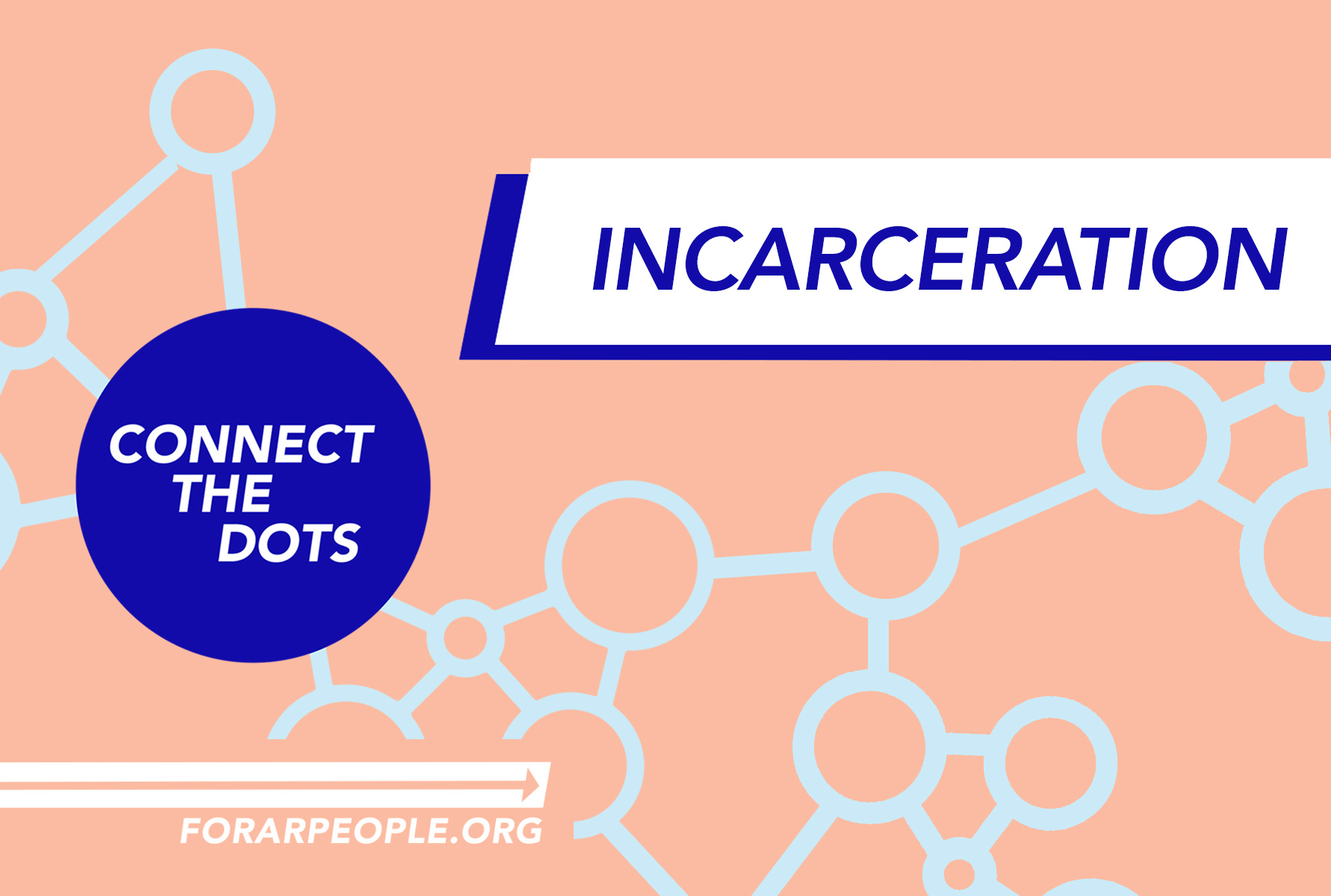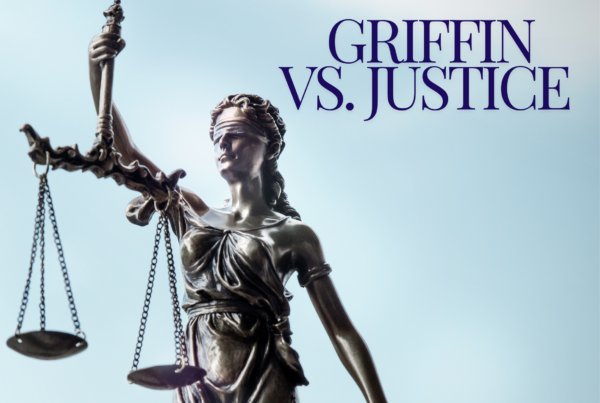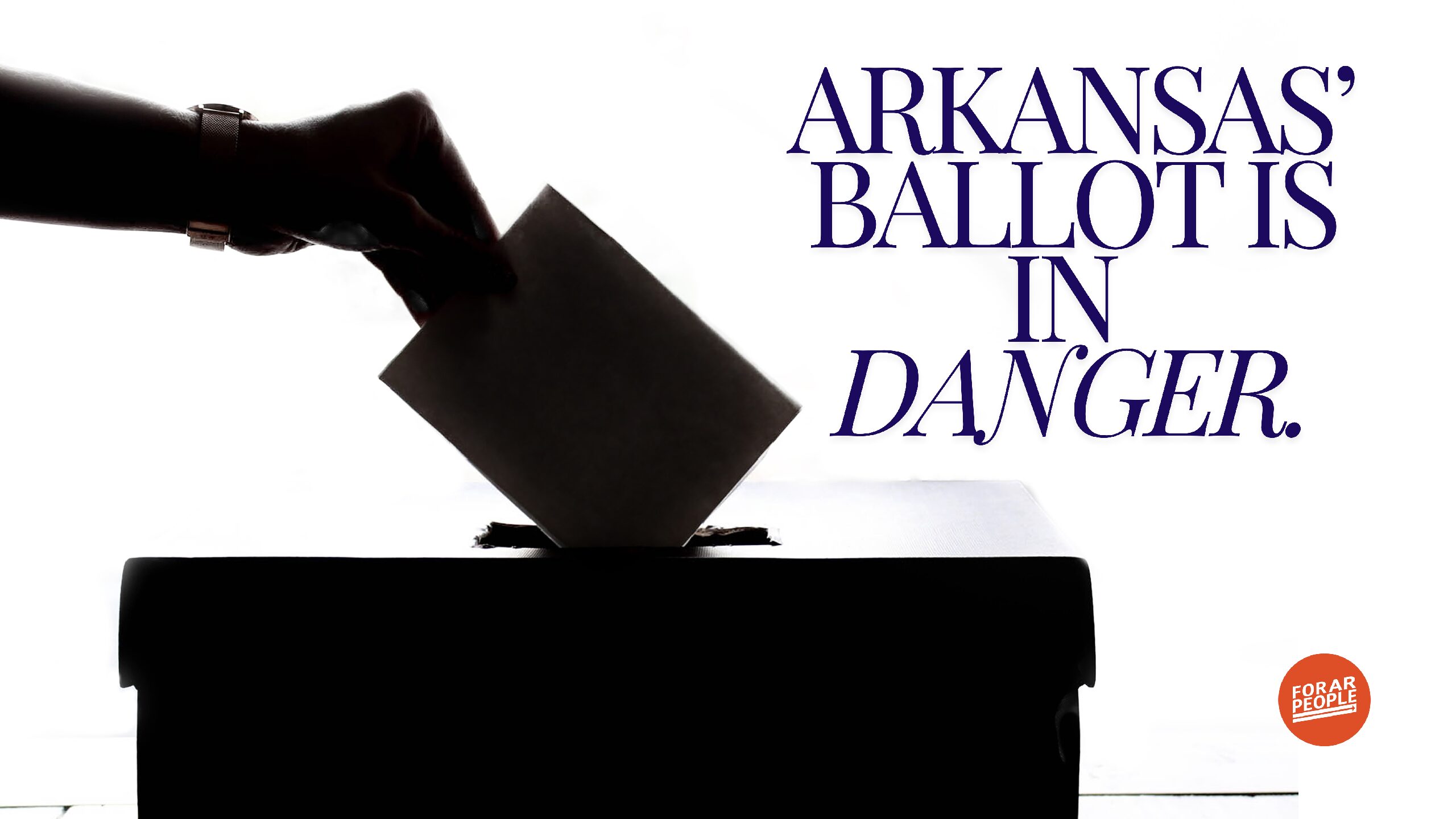Research-Driven Policy Can Reduce Incarceration Rates
Prison reform is a bipartisan issue that many Arkansans support; however policymakers frequently pass inadequate or harmful legislation that contributes to increased incarceration. Additionally, bad prison policy affects our most vulnerable communities. The data show that the Black community makes up 15% of our state population yet represent 47% of the overall prison and jail population.
Arkansas has one of the highest incarceration rates in the nation. Our incarceration rate is 942 per 100,000 people, meaning we lock up a higher percentage of people than any other state.
So what can we do? Addressing mass incarceration takes long term commitment and investment. Some examples include funding rehab and mental health facilities and finding solutions for nonviolent crime reform to address recidivism rates, or one’s tendency to recommit a crime (see Connect the Dots: Crime).
Nonviolent Crime Reform
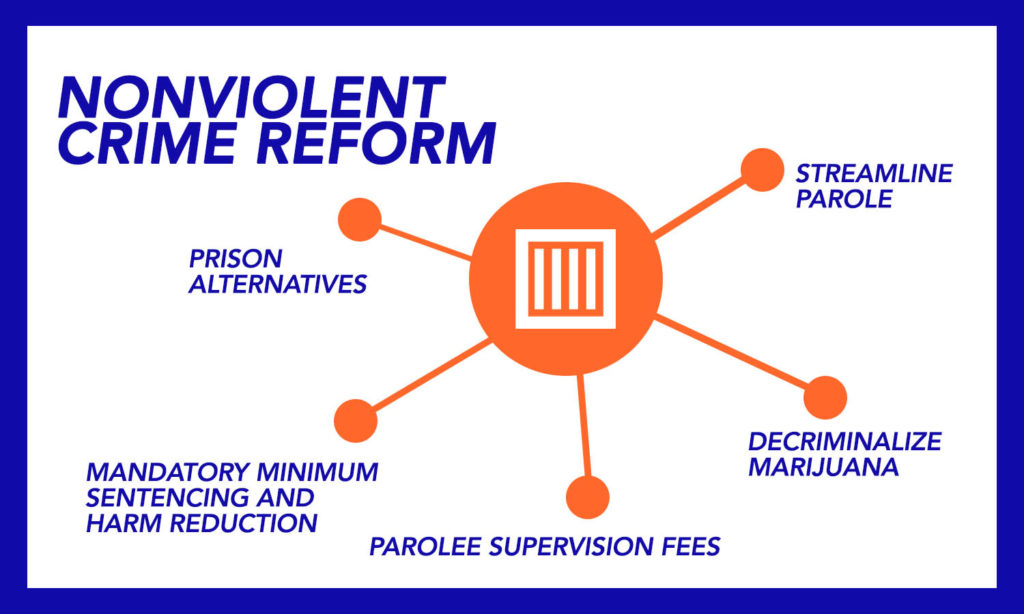
Prison Alternatives
- In 2017, Gov. Asa Hutchinson proposed Act 423, directing parole violators to community correction facilities rather than back to prison. It also created crisis intervention centers for nonviolent offenders with mental illness or drug treatment issues. This is a good example of forward-thinking policy that can change incarceration in our state. However if the programs aren’t funded properly or reevaluated, they lose their purpose. Increased funding for intervention centers is a better way to address prison overpopulation than funding solitary confinement cells, which is what Gov. Asa Hutchinson proposed and passed this fiscal session.
- Invest in mental health care
- Invest in rehabilitation facilities
Source: Conservative Justice Reform, Center for Budget and Policy Priorities
Streamline Parole
- Many people find themselves back in jail due to parole violations. In fact, based on the studies done by the Criminal Justice Oversight Task Force, Gov. Asa Huchinson referred to parole violators as the main increase of prisoners in Arkansas. Yet these violations are typically nonviolent. Arkansas took the first step in addressing this issue in 2017 with Act 423. Unfortunately the policy itself has done little to lower the overall incarceration rates of our state, and it does not address technical violations thoroughly. Furthermore, while COVID-19 was raging throughout our prisons, we returned almost the same number of people to prison for technical violations as we did in 2019.
States like New York have passed legislation that prevents parolees from being re-sentenced for nonviolent technicalities, like being late for curfew, failing a drug test, or missing appointments with their parole officer. Act 423 was a step in the right direction, but we need to take further action to see more substantial results.
- Stop imprisoning paroles for nonviolent technical violations
Source: Conservative Justice Reform, Center for Budget and Policy Priorities, Brennan Center for Justice
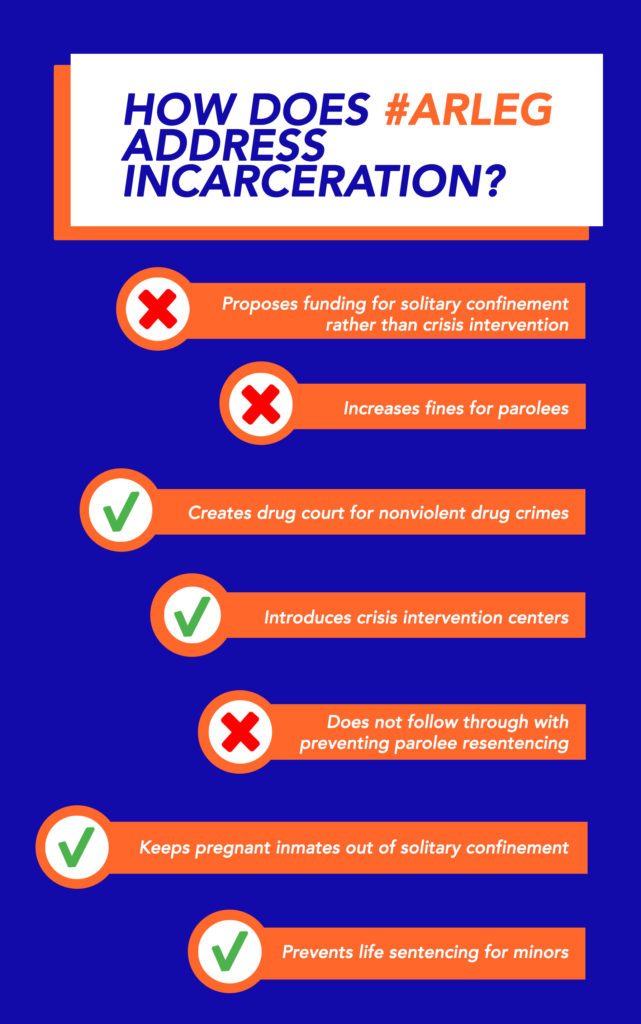
Parolee Supervision Fees
- In 2021, the legislature passed HB1114, which could “increase or decrease” the supervision fees imposed on parolees. Prior to its passing, the set fee was $35. Under the new law, the Department of Corrections can increase or decrease this fee by 20% at will. When you consider the correlation between incarceration and poverty, it’s clear that this policy is harmful to those reentering the workforce. We can do better.
Source: KUAR
Mandatory Minimum Sentencing and Harm Reduction
- In Arkansas many nonviolent offenders, specifically people charged with drug related crimes, are given a mandatory minimum sentence. In other words, regardless of good behavior, that person will be incarcerated for a minimum amount of time required by law. Removing mandatory minimum sentencing for nonviolent offenders would save tax dollars and would give nonviolent offenders an opportunity to reduce their time based on their own merit.
- Remove mandatory minimum sentencing for nonviolent offenses
Source: Center for Budget and Policy Priorities
Decriminalizing Marijuana
- Despite medical legalization in 2016, Arkansas has made little effort to decriminalize marijuana possession. A 2020 ACLU report found that Black people are 2.4 times more likely to be arrested for marijuana possession than white people. In fact, we have the 15th highest marijuana possession arrest rate in the nation. Arrests have increased nearly 50% between 2008-2018. In 2018, over ten thousand people were arrested for marijuana-related crimes, most of which were for possession. These possession arrests accounted for 49% of all drug arrests in the state. Decriminalizing marijuana could rapidly solve Arkansas’s overcrowding issue.
Source: Arkansas ACLU Report
Life After Prison: Policies that Affect Recidivism
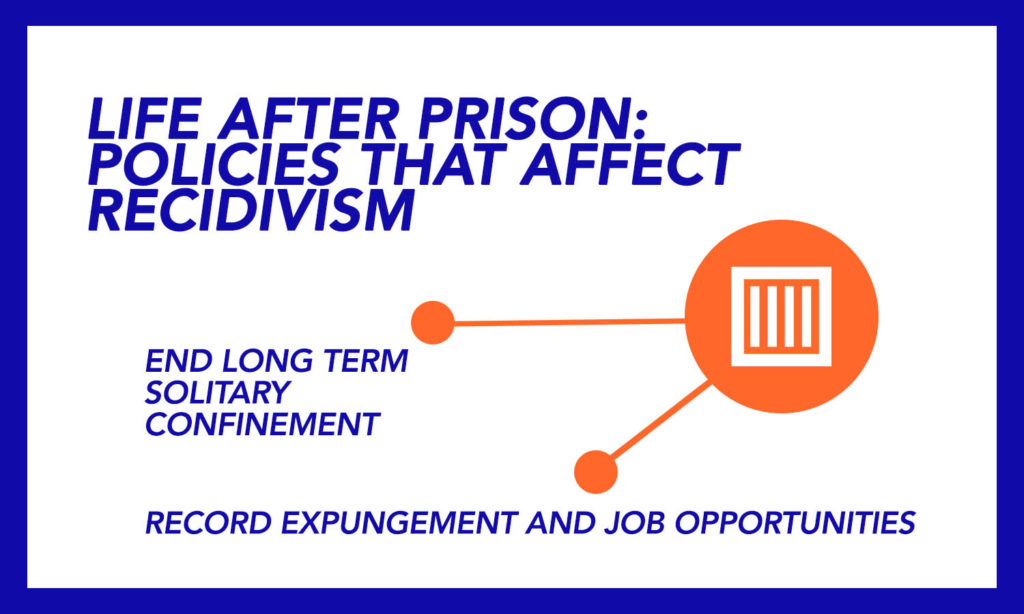
End Long Term Solitary Confinement
- Solitary confinement is problematic for many reasons. Firstly, it can have a devastating effect on an individual’s mental health. Even though people in solitary confinement comprise only 6% to 8% of the total prison population, they account for approximately half of those who die by suicide. Furthermore, even a short stay can impact a person after they’re released. For example, inmates who have had short stays in confinement are 15% more likely to be convicted again within three years of release.
Despite data that prove how detrimental solitary confinement is, the Arkansas legislature recently approved a $75 million budget increase for “restrictive housing.” In 2015, Yale University released a report that captured how bad our confinement system really is—Arkansas had the highest percentage of male inmates in solitary confinement in the country; nearly 14,000 male inmates are held in “administrative segregation,” for 22-23 hours a day for 30 days or more. The Department of Corrections claims that confinement is frequently “used for the safety of inmates during an investigation.” But the reason for isolation is irrelevant; solitary confinement not only hurts individuals, it contributes to a waste of taxpayer funds and an overflow of our prisons.
Source: Cornell Chronicle (Cornell University), Prison Policy Initiative, What to do with Survivors, Coping with Long-Term Effects of Solitary Confinement
Record Expungement And Job Opportunities
- Criminal records can weigh down a person for years and negatively impact their ability to live healthy, whole lives. For example, finding a job after being released from prison is no easy task. On top of that, finding adequate housing is a struggle when you can’t find reliable work. One way to address this is to pass “clean slate” policies that automatically seal records after a designated period of time. Another option is offering more technical training while in prison or on parole. Life after prison is daunting, especially when our leaders refuse to act.
- Clean slate policy: automatically seal records after a certain amount of time has passed
- Technical job training
- Affordable housing


